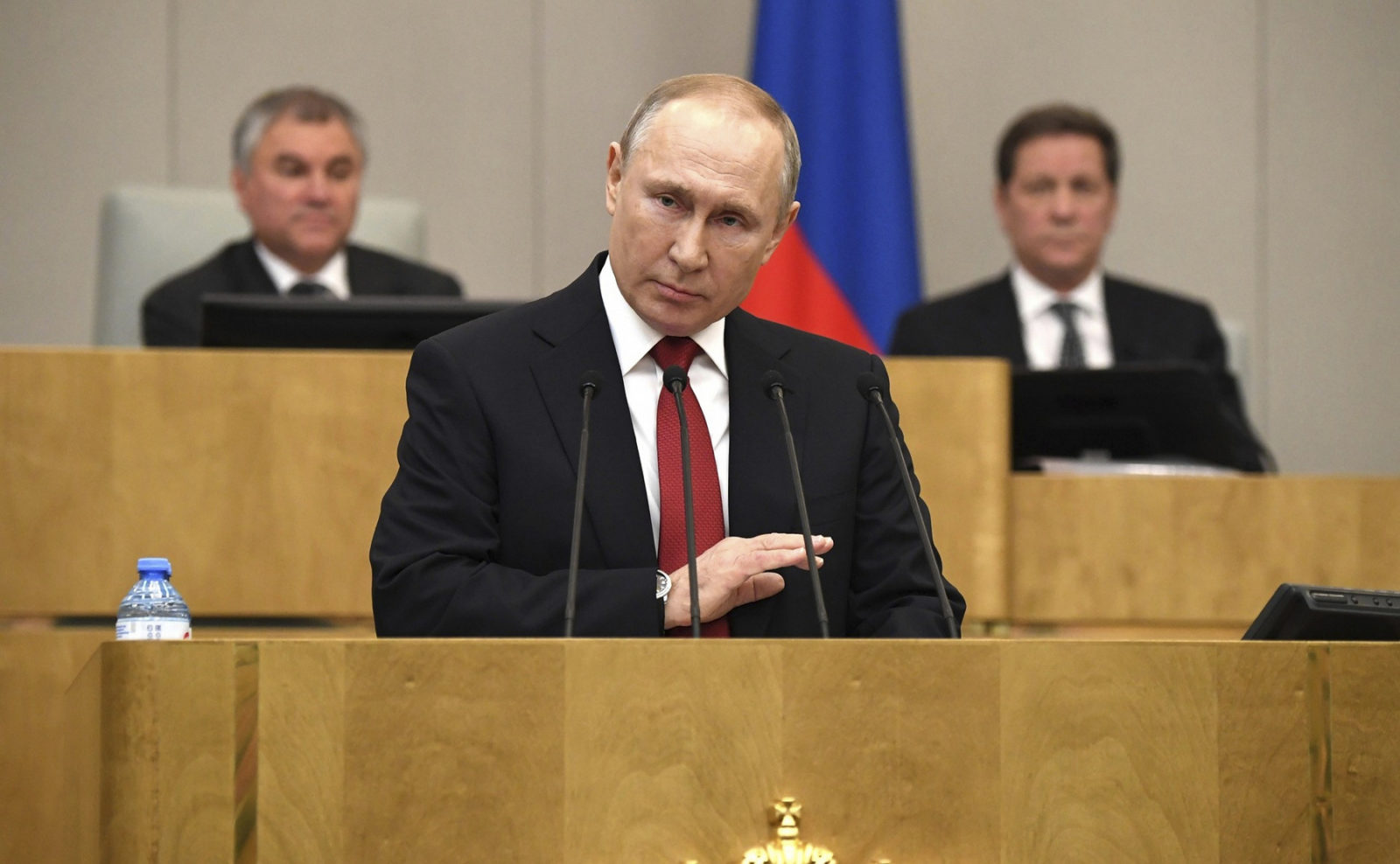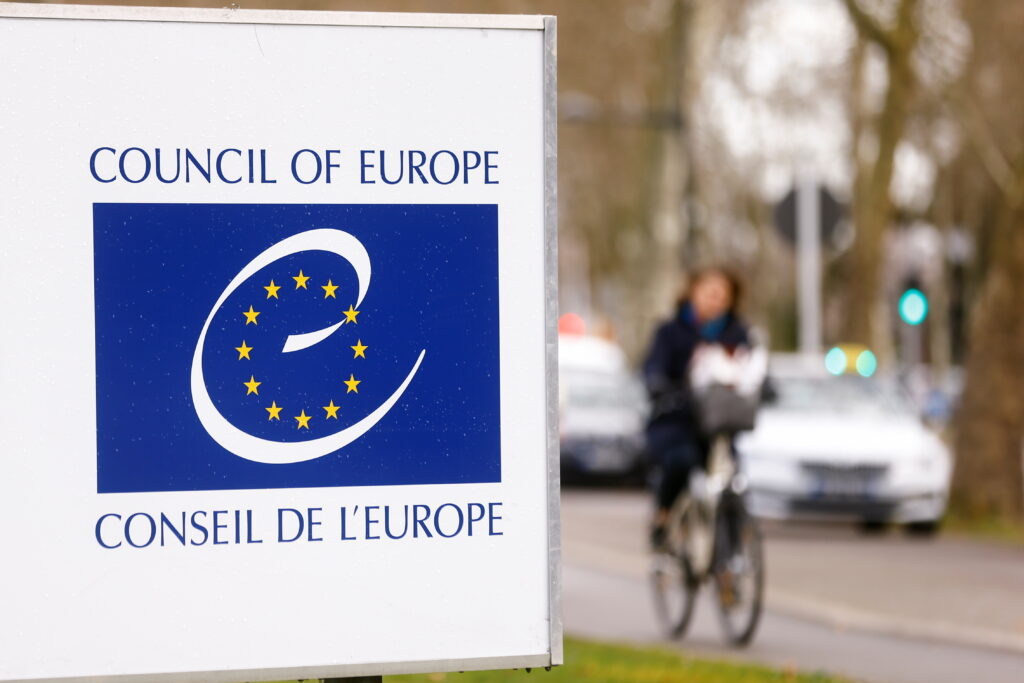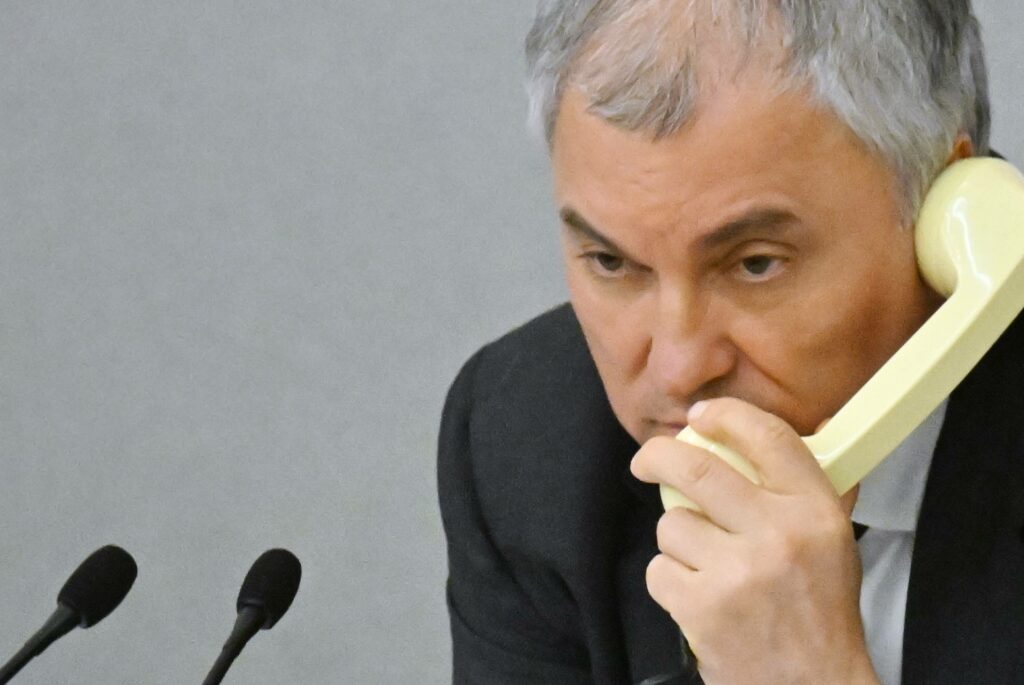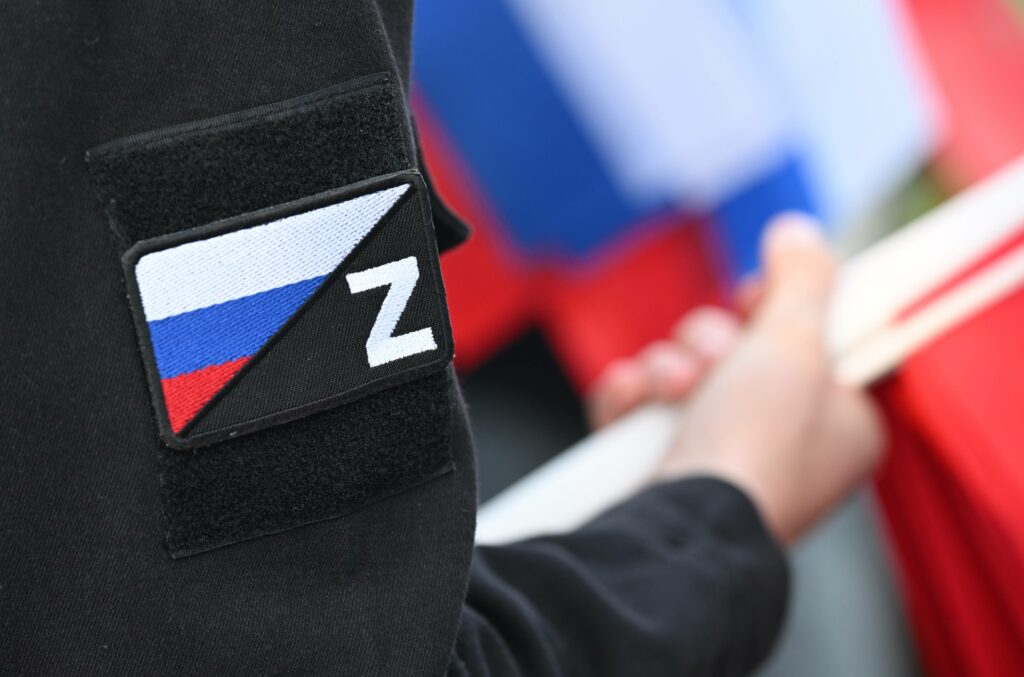Putin is upgrading his ‘favourite institutions’, bringing a new generation of bureaucrats on stage. It has meant a game of musical chairs in the governors’ corps, in the presidential administration. The old guard will be plonked down in honorary but publicly unremarkable positions; their place will be taken by a new, numerous and well-trained generation of “Kiriyenko-type nomenclature”.
Big Little Amendments
As can be clearly seen, the amendments turned out to be difficult to understand. Including everything that accompanied them. Naturally, many expected some kind of “constitutional process” would happen before 2024. The question was how Putin would stay in the Kremlin forever. One could have expected some kind of solemn, triumphant referendum. Or, on the contrary, some kind of thief-like cunning measures. However, already when the amendments were announced on 15 January, the faces of the senior officials sitting in the hall showed they were none the wiser: where was the solemn or cunning solution, actually? And how do these amendments answer the essential question: “Who is mister Putin now?”
The constitutional process evolved in strange fashion. Putin had every opportunity to turn the constitutional process into a big show of loyalty of social strata and corporations, and to do it without haste, con sentimento, transforming it into a new century-long “social contract”. Instead, he made a nervous, partisan raid on the Constitution. He already wants to sign amendments on 18 March and hold a “nation-wide vote” on 22 April. The pace of events has wreaked so much havoc that Dmitri Peskov, at a press conference on 3 March, had to admit that he does not understand which were the amendments authorised by Putin, which concerned amendments passed by the working group, and what exactly the Duma speaker was reading aloud as amendments. “Will God be mentioned in the Constitution? It is up to Putin to decide,” this phrase of Senator Klishas bares the situation in an anecdote-like manner. A poll conducted by VTsIOM at the end of February revealed that 77% were unable to name a single amendment.
Obviously, it is impossible to “re-establish the nation”, i.e. to complete the post-Soviet transition with a constitutional process that would culminate in a “popular vote” that has no reliable legal status.
Both Putin’s friends and enemies, as well as bureaucrats and the free class from major cities are looking at the recent developments with astonishment. Putin and his apparatus are carrying out constitutional reform as “an unpopular reform carried out by a transitional government” instead of “a festival of all-national happiness”, crowning the entire 30-year transition period.
The sense of Putin’s proposed amendments is simple. In the course of his 20 years, Putin has formed a “governance order”. However, this is not identical to what is known as a “political system”. The governance order is well known to everyone, and it is not based on the Constitution but, instead, on the fact that “it is impossible to govern Russia otherwise.” This lack of alternatives gives rise to well-known axioms. Russia is a unitary state with a strong centre, otherwise everything will spill over. Centralism is continuously strengthening, improving and reforming itself while remaining what it is: centralism. There can be no Western-style democracy in Russia, so all the institutions of power, including the elected ones, are consultative rather than representative bodies. There is nothing wrong with that since Vladimir Putin’s political philosophy is based on the idea that all “responsible people” should work together for Russia’s good. This means that each authority should contribute to a positive agenda and avoid any conflicts. Conflict, which is an important element of democracy and its axioms, is not part of Putin’s axiomatic system. To him, conflict is always either a “conspiracy from the outside” or a set of ill-meant actions from within. Russia can only be controlled by a political apparatus. If the apparatus is of sound quality, things will go well, otherwise they will go bad.
Without going into a detailed description of this political philosophy, we should say that Putin loves his institutions. They are his children. And he is the one who raised them. Both chambers of the Federal Assembly work harmoniously, the system of quick decision-making, needed by the president is well-established, senators and Duma deputies play a big role as Russia’s representatives in international politics. That is why they received a small bonus in the amendments: the opportunity to participate in consultations on ministerial candidates, and “lifetime senatorship” for a group of particularly distinguished members of the Federal Assembly.
What about the State Council? It is an important institution that ensures the participation of governors in strategic planning for Moscow. Since the top bureaucratic levels are now experiencing very rapid personnel rotations (today’s governor is tomorrow’s minister and vice versa), the State Council plays an important role in identifying those top officials who represent the right strategic thinking. The State Council got a bonus, too: it will be included in the Constitution as a state authority.
What about the Constitutional Court? Throughout Putin’s period in power, the Constitutional Court has followed the President’s decisions. At the same time, it has acted as an important body that juxtaposes domestic decisions with international law. This has not been easy, but the Constitutional Court acted in “national interests” (also during the annexation of Crimea). For this reason, the CC also received a bonus: the adoption of some decisions that diverge from international law will be facilitated by an amendment to the Constitution.
This list could go on and on. All 12 amendments authorised by Putin on 15 January are aimed at strengthening the “noble appearance” of his favourite institutions and granting small bonuses.
And Putin did not ask anything for himself.
At the same time, Putin cut the government into pieces and removed Medvedev, which means, of course, that the “bonuses” should be perceived by all leaders of “favourite institutions” as a honorary diploma for pensions (“a black spot”). Matviyenko, Volodin and Zorkin should thankfully resign as heads of the “favourite institutions”.
There was immediate talk about the possibility of early elections to the State Duma. The “United Russia” party is also a favourite institution. It cannot be included in the Constitution, but it must be reinforced, especially now, before 2024.
It is time
The perception of the new developments has ramified into three lines that do not intersect anywhere. Anti-Putin commentators write about the “final usurpation of power”, a constitutional coup, etc. Vladimir Putin and his apparatus are sure they are not doing anything serious about the Constitution, but are simply tightening the screws on institutions and governance balance sheets developed over 20 years. Bureaucrats are looking with astonishment, because the amendments do not provide a clear answer to the question about the future of Putin himself, and there is nothing to thrive on for the regions, i.e. in the depths of Russia.
By the beginning of March, deputies had submitted about 400 amendments to Volodin, and Krashennikov’s working group had lodged about a thousand. Several corporations publicly asked to be entered into the Constitution: “culture as our patrimony”, “children as our heritage”, “God and ancestors”, and some even suggested that “science” should be included. All this generated a wave of jokes about the need to include “pelmeni dumplings”, “Russian salad” and “hello to Aunt Nura from Norilsk” in the Constitution.
“What’s the point of the amendments?” – a young functionary was asked at a large meeting in one of the regions. He could not answer other than: “The time has come!” Well, the time for what? When asked a similar question, Dmitry Peskov answered such a question: “It will be explained in due time.”
The recent developments can only be understood by analysing absence. After 20 years in power, Putin had the opportunity to adopt a new Constitution. All the more so after the Crimea. The meaning of this step is to finally give a constitutional foundation for the “people” that Putin himself created during his rule. He had the whole deck of cards for this game on his hands. However, he did not do any of this. He preferred to rub his favourite “institutions of power” with a wet cloth, and reinforce those “rules of governance” that were already the ontology of post-Soviet Russia.
At this bifurcation of his life, Putin is saying something like this: “you and I” have created a system of governance. There is no alternative. Each one of you understands: if we start to unscrew one nut, all will fall apart. The system can handle some things but not others. On the whole, it works. And here we are handing this system over to the next generation of bureaucrats. Ourselves, we have not attempted to finalise it: let the next generation do it. Perhaps, the next generation will offer a way to reform it without threatening well-being. But that’s no longer our business. Can you try to govern Russia without involving centralism, state corporations, vicarious power in the regions, rent-based budget, a unitary state, exclusion of conflicts from politics, qualification of voters and reliance on the nomenclature? Well, go ahead and give it a try. Maybe you can do better.
This is the message Vladimir Putin has delivered. Now, everyone will have to “sense themselves” in 2020–2023, i.e. to think about how all strata and corporations will support the generational succession in Putinism. Law enforcement officials, civil bureaucrats, officials from state corporations and banks, large and small members of Forbes lists, lawyers, singers, cinema figures, residents of Rublevka and residents of Uralmash. Everyone. How will they all maintain the “rules of governance” themselves, even if they are carried away by the idea of changing the itinerary somehow?
“Can you manage without me?,” asks Putin. Well, there is no choice. People have walked with him for 20 years of their biographies. On 10 March, everyone was shocked and shaken: Putin created an opportunity for himself to run for office in 2024, but he made only as an opportunity, not a statement of intent. Putin will run for office. But he does not have the future in his hands. It is in the hands of the new generation of nomenclature, embedded in the system he created. Time will tell what this generation will want to do, not with the “political system” but with actual governance practices.










